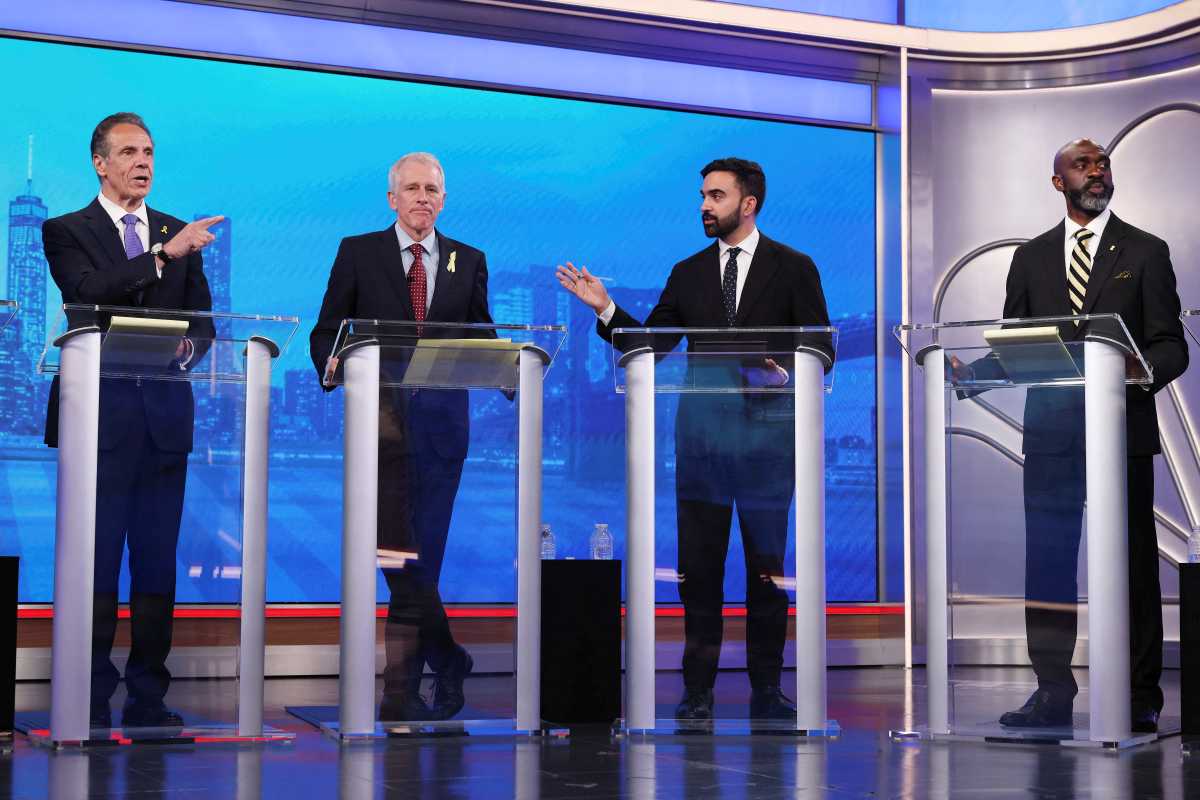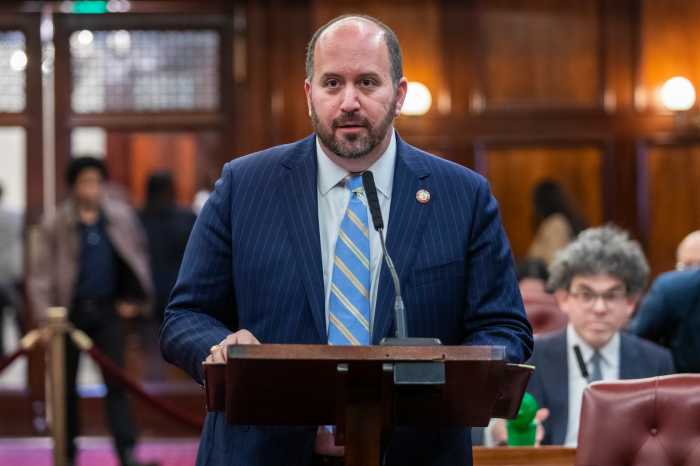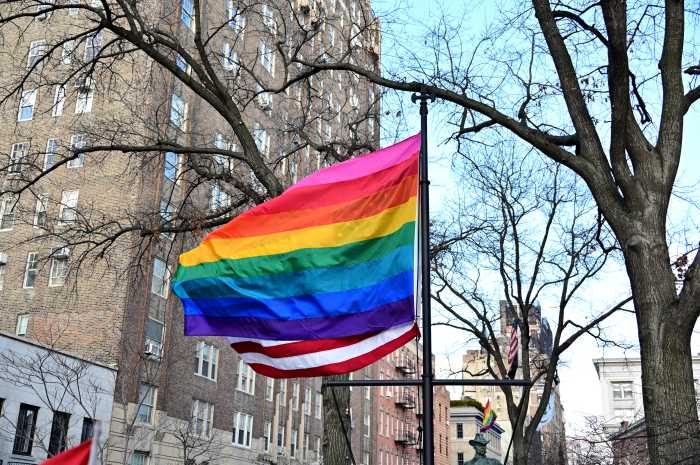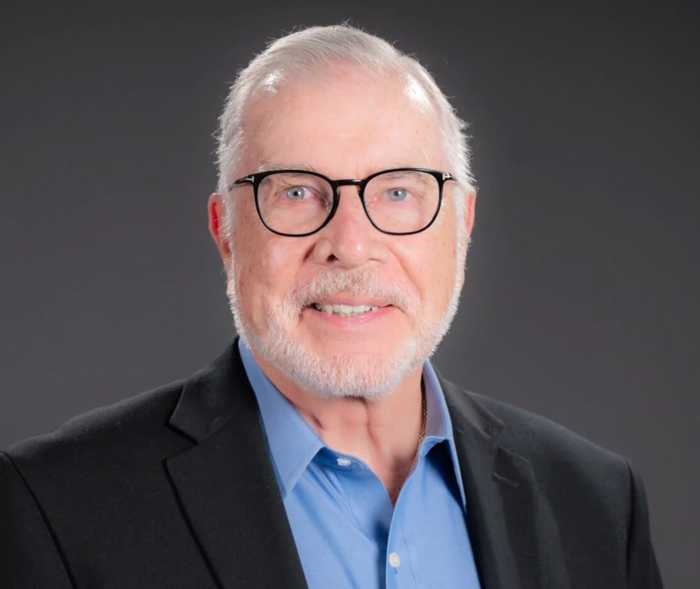Among LGBTQ voters, Queens Assemblymember Zohran Mamdani holds a slight edge over former Gov. Andrew Cuomo in the Democratic primary race for New York City mayor, according to a new poll released on June 12 by Honan Strategy Group and the non-profit organization Destination Tomorrow. However, neither candidate is standing out — and like in other polls, the contest is shaping up to be a two-person race.
The poll finds Mamdani in the lead among LGBTQ Democratic voters, with 25%, followed by 21% for Cuomo, 7% for City Council Speaker Adrienne Adams, and 6% each for New York City Comptroller Brad Lander, former New York City Comptroller Scott Stringer, and Brooklyn State Sen. Zellnor Myrie. Queens State Sen. Jessica Ramos and former Bronx Assemblymember Michael Blake are polling at 2% with the LGBTQ community. Mayor Eric Adams is not competing in the Democratic primary.
The new polling reflects the responses of 282 Democratic primary voters within the LGBTQ community in a broader survey of 1,257 Democratic voters in New York City’s general population.
The margin of error is roughly 7% within the LGBTQ electorate. Nearly a quarter of LGBTQ voters are undecided.
The numbers show differences between LGBTQ voters and the general population. Among all Democratic primary voters who responded to the poll, Cuomo leads with 38%, while Mamdani trails further behind at 22%. Lander has 12%, Speaker Adams has 10%, Stringer has 4%, Myrie has 2%, and Blake has 1%.
Mayoral candidates have discussed LGBTQ issues at multiple forums, including at Red Eye NY on May 31 and at the Church of the Village on March 27. The same six candidates appeared at both events: Speaker Adams, Blake, Lander, Mamdani, Ramos, and Stringer.
Several LGBTQ political clubs have announced endorsements ahead of early voting. The Stonewall Democractic Club of New York City, a citywide LGBTQ political club, ranked Speaker Adams number one, followed by Lander and Mamdani. The Jim Owles Liberal Democratic Club endorsed four candidates for mayor — Speaker Adams, Lander, Mamdani, and Queens State Senator Jessica Ramos — but did not initially rank them in any particular order. The Lambda Independent Democrats of Brooklyn endorsed Lander, Mamdani, and Myrie.
The poll also shed light on important issues facing the LGBTQ community. An outright majority of voters — including LGBTQ voters and non-LGBTQ voters — said it is important to them that “the next mayor of New York City has a demonstrated commitment to LGBTQ issues.” Nearly 80% of LGBTQ voters answered that way, along with 60% of all Democratic primary voters.
Furthermore, 59% of likely Democratic primary voters said they feel that Black and Brown LGBTQ individuals in New York City face “higher levels of stress, trauma, or mental health burdens” and a similar share of voters — 58% — say Black and Brown LGBTQ New Yorkers face challenges that are “even more pronounced” than white LGBTQ New Yorkers.
More than half of voters — 53% — also feel Black and Brown LGBTQ New Yorkers face “unique barriers to employment and economic advancement” that are not seen among white LGBTQ individuals.
Notably, just 15% of Democratic primary voters feel that “funding for LGBTQ organizations is distributed equitably” between Black- and Brown-led groups and white-led groups. Just 11% feel Black and Brown LGBTQ New Yorkers have equal access to safe and affordable housing.
Sean Coleman, the executive director of Destination Tomorrow, said in a press briefing on June 12 that he hopes the findings can be helpful in future discussions surrounding policy and funding. LGBTQ voters, Coleman emphasized, are not a monolith.
“Our experiences matter and they will be a crucial force in the upcoming election,” Coleman said. “I’m hoping in the next debate there will be a discussion, maybe a question or two, about the policies moving forward for LGBTQ New Yorkers.”
The poll was conducted with text-to-web methodology between June 5 and June 9. The respondents were made up of Democrats who voted in any Democratic primary election between 2021 and 2024 and individuals who recently registered to vote and are likely to vote for Democrats.





































